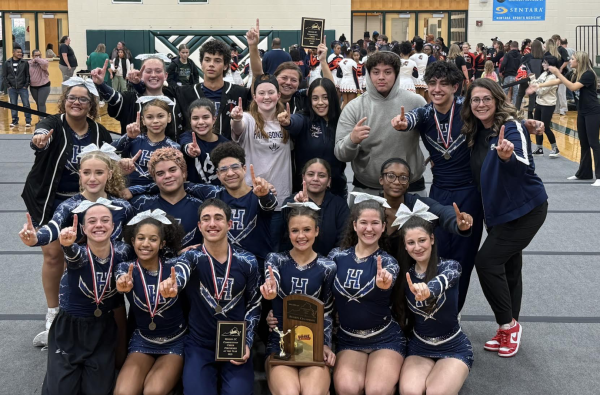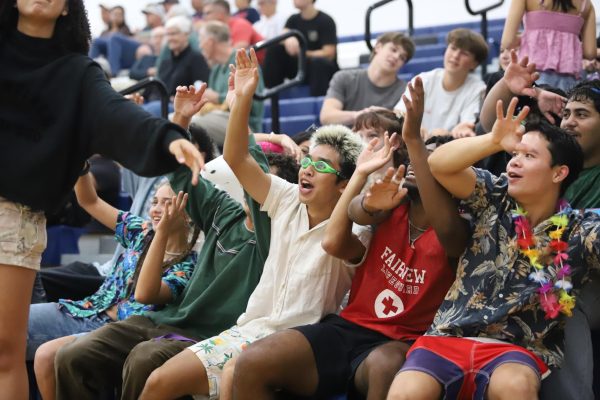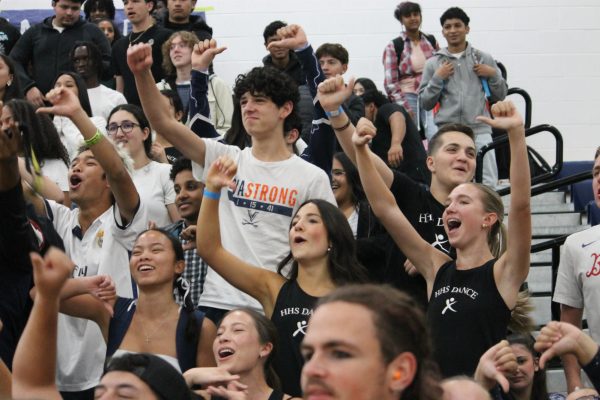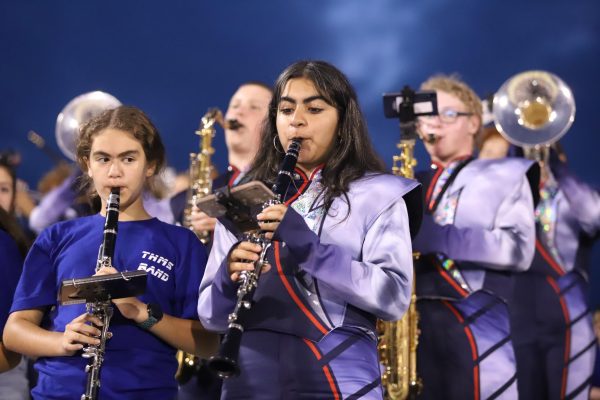English pushes school involvement as new police chief
After 28 years with the Richmond Police Department (RPD), Harrisonburg’s new police chief, Eric English, doesn’t think there’s a lot that can surprise him.
“[Harrisonburg] is very similar [to Richmond] diversity wise,” English said. “I will say the community support here is just as strong as the community support we had in Richmond, maybe even stronger. The issues you deal with in Harrisonburg are much different than the issues you deal with in Richmond crime wise. Here you have a very strong part of the community that pushes restorative justice, and while that’s pushed in Richmond, I’d say that’s much stronger here.”
English’s overall goal is at the same as it’s always been.
“One, we have to be more engaged with our community. We have to get to know individuals in our community more on a one-on-one basis than just when we respond to a call for service. I don’t want the only time our officers engage with people to be in a time of need. I want to make sure we get out of our cars and just have casual conversations with community members. That’s how you resolve issues,” English said. “Then, holding the community accountable [is a goal] as well. [I want to] make sure that we connect to the point where the community feels like a part of us, and we all feel connected.”
Hand in hand with this vision comes engagement with the schools.
“We need to do a better job of engaging the young people in our community. I want us to be a part of individual’s lives at a young age where we don’t have to deal with issues on the back end when they can stray off path,” English said. “We want to do our part to keep people on the path.”
For English, that means little things like being present at lunch (or recess in the elementary schools).
“You’ll see me at basketball games,” English said. “I don’t think it’s just the [student resource officer’s] responsibility to be involved with our students. I think it’s a collective effort.”
Much of English’s approach to school involvement comes out of hard-learned lessons from his time in Richmond.
During his time there, he was in charge of Richmond’s student resource officers (SROs). Many times, SROs would be called into disciplinary situations the administration should have handled.
“We would end up making an arrest for things that when I was in school, I never would have gotten arrested for,” English said. “We were the ones actually introducing kids into the justice system. So we came up with this program called LIFE, and we developed a nine week curriculum… It was still holding them accountable, but not introducing them to the justice system because we know how that impacts kids, and it can follow you for the rest of your life.”
LIFE stands for law enforcement intervention focusing on education. In Richmond, it’s a program that uses restorative justice principles, something that the HHS administration has already implemented.
“Based on what I’ve seen so far here, it’s much different as far as what you deal with in Richmond [schools] and what you deal with here. There were a lot of incidents that occurred in schools in Richmond. I’m not seeing the same thing here,” English said. “I’m not saying there aren’t issues or things we need to deal with because there are, but the magnitude of those issues is much smaller than what I’m accustomed to seeing. And that’s a good thing.”
English does plan to keep more rigorous statistics on the number of students who get involved with the justice system, but right now, he doesn’t see an issue.
His main goal for the time being is to broaden students’ experiences with the police department. Some of English’s ideas include a lunch buddy program and a police athletic league.
What actually comes to fruition depends on the amount of resources English can mobilize.
“One of the things I have to be careful with, because I get excited, is not stretching our personnel too thin,” English said. “I want them out and involved, but at the same time I want it to be quality programs and interactions and not just quantity.”
Your donation will support the student journalists of Harrisonburg High School. Your contribution will allow us to purchase equipment and cover our annual website hosting costs.













